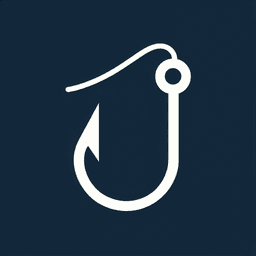
Fishing: Definition, Techniques, and Examples
February 27, 2025
Fishing
Fishing is the activity of catching fish, either for commercial purposes or as a recreational pastime. It is a crucial aspect of maritime culture and economy, especially for communities living near water bodies. Fishing can be conducted in various environments, including oceans, rivers, lakes, and ponds, using different techniques and equipment.
Types of Fishing
- Commercial Fishing: This involves catching fish on a large scale for sale and distribution. It is a significant industry that supports the livelihoods of millions worldwide.
- Recreational Fishing: Also known as sport fishing, this is done for pleasure or competition. It often involves angling, which uses a rod, line, and hook.
- Subsistence Fishing: Practiced by individuals or communities to provide food for themselves and their families, often using traditional methods.
Fishing Techniques
- Angling: A method using a rod, line, and hook, often with bait or lures.
- Netting: Involves using nets to capture fish, commonly used in commercial fishing.
- Trapping: Uses traps or pots to catch fish or crustaceans, such as crabs and lobsters.
- Spearfishing: Involves using a spear or harpoon to catch fish, often practiced by divers.
Importance to Maritime Users
For sailors and maritime users, fishing is not only a source of food but also a way to understand marine ecosystems and contribute to sustainable practices. Knowledge of fishing techniques and regulations is essential for ensuring the conservation of fish populations and the health of marine environments.
Regulations and Sustainability
Fishing activities are often regulated by local and international laws to prevent overfishing and protect marine biodiversity. Sustainable fishing practices are encouraged to maintain fish stocks and support the long-term health of ocean ecosystems.
Fishing: A Maritime Perspective
Fishing is a crucial activity within the maritime industry, encompassing the practice of catching fish and other aquatic species from oceans, seas, and other bodies of water. It plays a significant role in providing food, employment, and economic benefits to communities worldwide.
Common Questions About Fishing in Maritime Contexts
What are the primary methods of fishing used in maritime industries?
Maritime fishing employs various methods, including trawling, longlining, and purse seining. Trawling involves dragging a net through the water to capture fish, while longlining uses a long line with baited hooks. Purse seining encircles a school of fish with a large net.
How does fishing impact the maritime environment?
Fishing can have both positive and negative impacts on the maritime environment. Sustainable fishing practices help maintain fish populations and ecosystem balance. However, overfishing and destructive methods can lead to habitat destruction and depletion of fish stocks.
What regulations are in place to ensure sustainable fishing?
International and national regulations, such as quotas, size limits, and seasonal restrictions, are implemented to promote sustainable fishing. Organizations like the International Maritime Organization (IMO) and regional fisheries management organizations play key roles in enforcing these regulations.
What is the role of technology in modern maritime fishing?
Technology plays a vital role in modern fishing, with advancements such as GPS, sonar, and satellite tracking improving the efficiency and safety of fishing operations. These technologies help locate fish, navigate safely, and monitor environmental conditions.
How does climate change affect maritime fishing?
Climate change impacts maritime fishing by altering fish distribution, breeding patterns, and habitat conditions. Warmer ocean temperatures and changing currents can lead to shifts in fish populations, affecting the availability of certain species.
Understanding these aspects of fishing within the maritime context is essential for ensuring the sustainability and prosperity of this vital industry.




